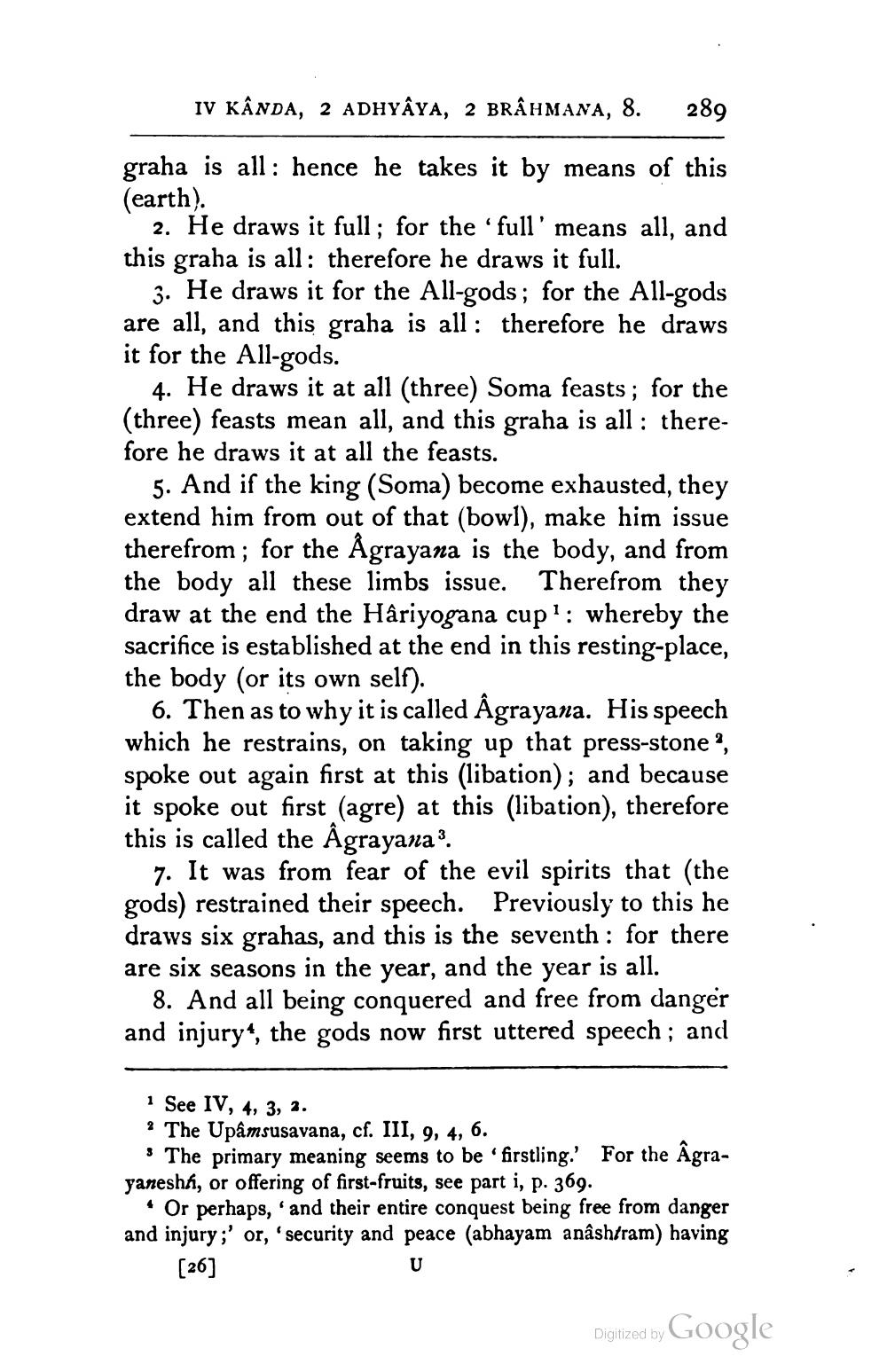________________
IV KÂNDA, 2 ADHYAYA, 2 BRÂHMANA, 8.
289
graha is all: hence he takes it by means of this (earth).
2. He draws it full; for the 'full' means all, and this graha is all: therefore he draws it full.
3. He draws it for the All-gods; for the All-gods are all, and this graha is all: therefore he draws it for the All-gods.
4. He draws it at all (three) Soma feasts; for the (three) feasts mean all, and this graha is all : therefore he draws it at all the feasts.
5. And if the king (Soma) become exhausted, they extend him from out of that (bowl), make him issue therefrom ; for the Ågrayana is the body, and from the body all these limbs issue. Therefrom they draw at the end the Hâriyogana cupl: whereby the sacrifice is established at the end in this resting-place, the body (or its own self).
6. Then as to why it is called Âgrayana. His speech which he restrains, on taking up that press-stone", spoke out again first at this (libation); and because it spoke out first (agre) at this (libation), therefore this is called the Agrayana ?
7. It was from fear of the evil spirits that (the gods) restrained their speech. Previously to this he draws six grahas, and this is the seventh : for there are six seasons in the year, and the year is all.
8. And all being conquered and free from danger and injuryt, the gods now first uttered speech; and
See IV, 4, 3, 2. * The Upâmsusavana, cf. III, 9, 4, 6.
* The primary meaning seems to be firstling. For the Âgrayaneshh, or offering of first-fruits, see part i, p. 369.
. Or perhaps, and their entire conquest being free from danger and injury;' or, 'security and peace (abhayam anâshtram) having
[26]
Digitized by Google




